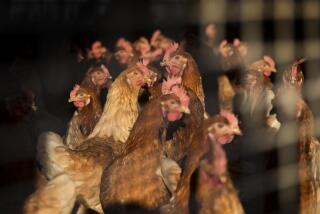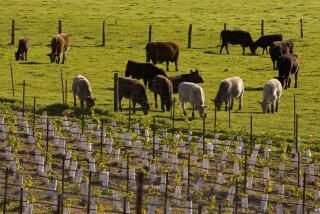Trump administration moves to kill regulations on animal welfare
The Trump administration has just announced plans to reject new regulations on the treatment of cage-free chickens proposed during the Obama administration. This reversal doesn’t come as a huge surprise - the U.S. Department of Agriculture (USDA) has repeatedly delayed the enforcement of regulations, prompting a lawsuit from smaller organic farmers earlier in 2017.
Tensions have been high amidst debates over what constitutes a “cage-free environment.” Cage-free animals in the organic industry are often kept in a restricted, indoor environment for the majority of the day. The term “cage-free” is misleading in that it implies a greater degree of freedom than is actually allowed.
As regulations currently stand, animals must be provided with “access” to the outdoors. The extent of that access, however, is less clear. Large organic egg producers have built massive houses for their animals that hold thousands of hens in a restricted space. The hens are still considered “cage-free” due to small enclosed “porches” that remain opened for short periods of time.
At the end of the Obama administration, new rules delineated that these “porches” were no longer adequate for obtaining cage-free status.
Since then, many large organic egg companies and agribusiness-friendly members of Congress have been fighting enforcement of the new regulations, which the USDA continues to put off. Non-organic farm groups, such as the National Pork Producers Council, have joined them in combating enforcement.
Smaller organic farms, however, have been pushing for the regulations to remain intact. They see it as a way to keep things fair, so companies that are allowing greater cage-free access are not at a disadvantage.
The recent announcement from the administration claims the regulations “would exceed USDA’s statutory authority,” and are therefore being abandoned.
The organic food industry has economic reasons to push for higher standards. Consumer trust is a critical factor for organic producers, and in general, consumers expect organic egg companies to be more invested in animal welfare practices. Here are 25 other foods you should consider buying organic, and why.
related stories
- Kraft Heinz to Donate 1 Billion Meals and Go Cage-Free
- Here’s Why Organic Food Might Not Be Worth the Price
- Cage-Free, Free-Range, and More: How to Decode Your Egg Carton
More to Read
Eat your way across L.A.
Get our weekly Tasting Notes newsletter for reviews, news and more.
You may occasionally receive promotional content from the Los Angeles Times.






